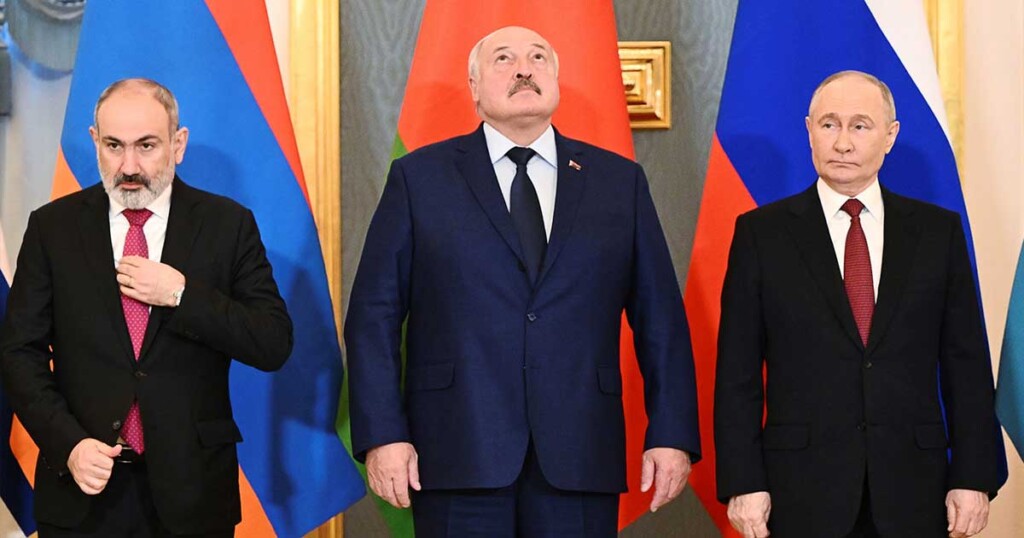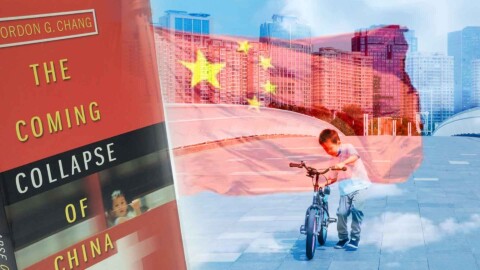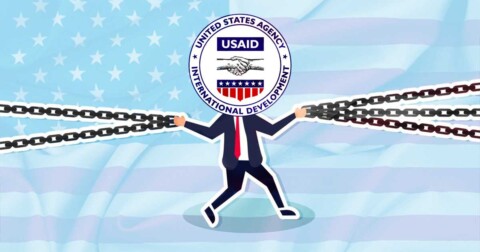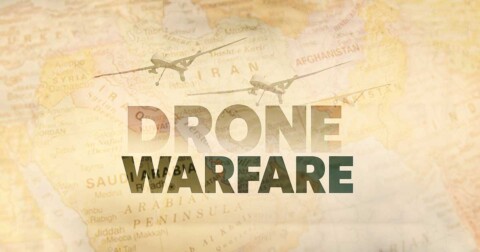Armenia’s unsuccessful attempts to pressure CSTO member states and to elicit a reaction regarding the alleged “aggression of Azerbaijan” served as the reason for Pashinyan’s refusal in 2022 to sign the joint declaration of the organization’s Collective Security Council and the proposed assistance measures.
The leadership of Russia and the other CSTO member states sought first to obtain reliable information about the events and then to define appropriate response measures—primarily diplomatic ones. Yerevan had acted in a similar manner during the armed clashes on the Tajik-Afghan and Tajik-Kyrgyz borders.
STATE OF WAR OR LIMITED AGGRESSION?
Russia and other CSTO member states did not consider it appropriate to become directly involved in the situation on the Armenian-Azerbaijani border at Yerevan’s request. Moscow believed that such a step could lead to a military confrontation with Azerbaijan and Turkey—an outcome that would contradict Russia’s national interests.
Moreover, according to Article 119 of the current Constitution of the Republic of Armenia,
“In the event of an armed attack on the Republic of Armenia, an imminent threat of such an attack, or a declaration of war, the Government shall declare a state of war, address the nation, and may proclaim a general or partial mobilization.”
During the incidents of May 11 and November 14, 2021, as well as September 13, 2022, Armenia did not declare a state of emergency (or war), nor did it announce general or partial mobilization.
The refusal to invoke Article 119 of the Constitution indicated that Armenia’s leadership did not consider the events on the border to be a large-scale act of aggression by Azerbaijan. Nevertheless, Yerevan demanded precisely such a political assessment—and even military assistance against the Azerbaijani army—from Russia and other CSTO member states.
In 2023, Nikol Pashinyan refused to host the previously planned CSTO military exercises in Armenia, declined to fill the Armenian quota for the post of Deputy Secretary-General, and recalled Armenia’s representative from the organization.
Pashinyan stated that Armenia might withdraw from the CSTO, claiming that the Organization itself was “withdrawing from Armenia.” However, several months later he softened his position, explaining that Yerevan was “not preparing the ground” for withdrawal, but rather giving itself and the bloc time to reflect on future steps.
FREEZING OF MEMBERSHIP
On November 24, 2023, Armenia for the first time did not participate in the annual CSTO summit, after which its leadership began to boycott the organization’s activities. In February 2024, Pashinyan officially announced that Armenia was “freezing its membership” in the CSTO.
The condition for returning to the organization was formulated as a demand that the CSTO unequivocally condemn Azerbaijan’s actions as aggression during the 2022–2023 border clashes and fully fulfill its allied obligations toward Armenia as a victim of aggression. The CSTO’s proposed measures to normalize the situation—such as sending an observer mission to the border—were rejected by the Armenian leadership.
Instead, at Yerevan’s request, a European Union observer mission was deployed along the Armenia–Azerbaijan border.
The CSTO Charter does not provide for the “freezing of membership” at the discretion of a member state. It only grants the right to withdraw from the organization at any time, by one’s own decision—a right already exercised by Azerbaijan and Georgia (in 1999), as well as by Uzbekistan, twice—in 1999 and 2012.

A CALL FOR A FINAL DECISION
Armenia’s suspension of participation in activities, boycott of governing bodies, and halt of financial contributions constitute a violation of the Organization’s Charter.
For a long time, the situation has remained in a state of uncertainty: Moscow’s official position “proceeds from the fact that Armenia still remains a full member of the CSTO—with all the rights and obligations that derive from that status.” The CSTO leadership likewise continues to treat Armenia as a full-fledged member of the organization.
In January 2025, CSTO Secretary-General Imangali Tasmagambetov stated:
“We proceed from the understanding that the Republic of Armenia is our ally, and all our obligations toward Armenia remain in force,”
adding that Armenia can at any moment return to full participation in the Organization’s work.
At the same time, the CSTO leadership and member states have repeatedly called on the Armenian authorities to make a “final decision”—whether they intend to retain membership or withdraw from the organization.
In his address on September 24, 2023, marking Armenia’s Independence Day, Nikol Pashinyan stated that “the instruments of the CSTO and the Armenian-Russian strategic partnership are insufficient to ensure Armenia’s external security.”
He also delivered a critical assessment of Russian policy, emphasizing:
“An analysis of events shows that the security systems and allies on which we have relied for years have set themselves the task of demonstrating our vulnerability and justifying the alleged impossibility of the Armenian people maintaining an independent state.”
CONSENT TO THE STATUS OF A BORDER PROVINCE?
Prime Minister Nikol Pashinyan has labeled the political forces advocating for the preservation of allied relations with Russia as opponents of democracy and of Armenian statehood itself. He declared:
“The essential meaning of the events we have been witnessing in recent years—and even today—is the following question: will Armenia be a sovereign, free, democratic state, or a frightened border province? This very choice is now being presented almost openly and transparently within Armenia’s internal political space. And every citizen must decide: are you part of the movement defending independence, or a supporter of that border province?”
Announcing the possibility of Armenia’s withdrawal from the CSTO and the termination of allied relations with Russia, Pashinyan expressed confidence that partnership with the collective West would ensure the protection of Armenia’s independence and sovereignty.
According to him, cooperation “with all partners ready for mutually beneficial steps” will make it possible to carry out “deep and comprehensive reforms of the army and security structures,” as well as to “legally confirm the agreements reached on October 6, 2022, in Prague, and on May 14, 2023, in Brussels, under which the administrative borders of Soviet Armenia de jure become the state borders of the Republic of Armenia.”
RATIFICATION OF THE ROME STATUTE
On the eve of the European Political Community Summit in Spain (October 3, 2023), the National Assembly of Armenia ratified the Rome Statute of the International Criminal Court (ICC)—the same court that had previously issued an arrest warrant for the President of the Russian Federation, Vladimir Putin.
At the same time, Nikol Pashinyan claimed that the ratification of the Rome Statute “is in no way directed against the CSTO or the Russian Federation. It stems from our own interests in the field of external security, and the adoption of such a decision represents our sovereign right.”
Moscow, however, does not recognize the jurisdiction of the International Criminal Court and considers it an openly hostile organization toward Russia. The Armenian authorities ignored Moscow’s statements about the “unacceptability of Armenia’s ratification of the Rome Statute under conditions where this body has issued arrest warrants for the top leadership of Russia,” as well as its warning that ratifying the document would have “the most negative consequences for bilateral relations.”
For Russia, a further deterioration of relations with Armenia would be undesirable; however, Moscow’s interests are also not served by Yerevan’s current foreign policy course, nor by the continued discrediting of the CSTO through the actions of one of its member states.
If Moscow and the CSTO as a whole agree to maintain the format of Armenia’s “frozen membership,” it would allow Yerevan to continue balancing on the edge of leaving the organization—without actually crossing that line.
STRENGTHENING THE ANTI-RUSSIAN VECTOR
Nevertheless, the collective West now has the opportunity to exploit the dependence of the Armenian leadership and to continue strengthening the anti-Russian vector of Armenia’s policy—through the legally formalized withdrawal of Armenia from the CSTO, the removal of Russian military presence, accession to anti-Russian sanctions, and the reduction of economic ties with Moscow.
If the Russian military contingent were to withdraw and Armenia were to leave the CSTO, the country would become an object dependent on the policies of the collective West in the South Caucasus—something that could ultimately call into question the very preservation of Armenian statehood in the future.
For Azerbaijan and Turkey, the potential danger of the “Armenian question” does not lie in Armenian revanchism as such, but rather in the possibility that extra-regional actors might use Armenia as an instrument of pressure on its neighbors.
Due to Yerevan’s growing dependence on the policies of foreign powers, both Azerbaijan and Turkey are increasingly reluctant to regard Armenia as a state with which relations can be built on an equal footing.

CONTROL OF CHAOS IN THE HANDS OF THE WEST
At present, the most acceptable scenario for Ankara and Baku in resolving the “Armenian question” is to turn Armenia into a dependent state, whose political course would be directly managed by the authorities of Turkey and Azerbaijan.
For the United States, NATO, and the European Union, such a development could also be acceptable—if it results in the elimination of Russia’s military presence in Armenia, the establishment of control over its borders, and the deployment of NATO bases on Armenian territory.
Another scenario acceptable to the U.S./NATO/EU involves the controlled destabilization of the region—that is, provoking instability designed to create as many problems as possible for neighboring South Caucasus states, primarily Iran and Russia, but, if necessary, also Azerbaijan and Turkey.
The U.S.–Armenia Strategic Partnership Charter, signed on January 14, 2025, does not provide Yerevan with genuine security guarantees—it merely contains promises to maintain dialogue, include Armenian military personnel in training programs, and other declarative measures of that kind.
The signing of this document served purely as a propaganda gesture for the outgoing Joseph Biden administration. It is now evident that the new Donald Trump administration is radically changing its foreign policy course and will approach the South Caucasus states strictly in accordance with its own national interests.
POLARIZATION OF THE EU ON THE ISSUE OF BAKU
The European Union, on the other hand, lacks a unified position regarding the conflict between Armenia and Azerbaijan.
Nine EU member states—Bulgaria, Hungary, Italy, Latvia, Lithuania, Poland, Romania, Slovakia, and the Czech Republic—are the most interested in Azerbaijani energy supplies and have signed strategic partnership agreements with Azerbaijan.
The remaining member states maintain a reserved and neutral stance. France, Greece, and Cyprus support the rearmament of the Armenian army and have expressed their readiness to assist Armenia in its confrontation with Azerbaijan and Turkey.
However, it is clear that these countries cannot serve as reliable guarantors of Armenia’s security; rather, their actions only reinforce Ankara’s and Baku’s conviction that resolving the Armenian question by force would be justified if a favorable moment arises.
Such a scenario could become reality in the event of Armenia’s official withdrawal from the CSTO and the removal of Russian military presence from its territory.
INSTEAD OF REPLACEMENT — COMPLEMENTING ALLIES
Although Yerevan has officially announced its ambiguous choice in favor of the collective West, the Armenian leadership has not joined the anti-Russian sanctions, nor has Armenia formally withdrawn from the CSTO or the Eurasian Economic Union (EAEU).
Against the backdrop of shifting dynamics on the Ukrainian front in Russia’s favor, Yerevan has begun to display conciliatory gestures toward Moscow.
Thus, in September 2024, Armenia refused to sign the anti-Russian declaration of the Council of Europe, which called for supporting the International Criminal Court’s (ICC) investigation into the alleged “Russian aggression against Ukraine.”
Subsequently, during the Second World Armenian Summit in Yerevan (September 17–20, 2024), Nikol Pashinyan stated that Armenia does not plan to reduce trade volumes or sever economic ties with Russia and the EAEU.
He emphasized that the country advocates for the diversification of economic relations—developing cooperation with the European Union and the United States—but that this represents an addition, not a replacement, of existing partners.
At the same time, he underlined that diversification is a gradual process that requires time.
The new Donald Trump administration has acknowledged the gradual emergence of a multipolar world order and the end of the era of a single global center of power.
Under conditions of a new international system taking shape and a deepening crisis within the collective West, the Armenian authorities have begun to recognize the need to adjust their radically pro-Western foreign policy course.
RELATIONS ON A LINE OF STRATEGIC UNCERTAINTY
Thus, on January 23, 2025, at the World Economic Forum in Davos, Pashinyan announced that the Armenian leadership had decided to pursue a “balanced and balancing foreign policy,” which, in his words, means:
“We will strive to balance our relations with the European Union, Russia, and the regional powers.”
According to several Armenian media outlets citing sources within the ruling party, Pashinyan, influenced by recent geopolitical shifts, has allegedly “decided to once again seek support in relations with Russia” and instructed state institutions to reactivate contacts and participation in joint initiatives.
For its part, the Russian leadership has also shown readiness to restore bilateral relations in a constructive direction.
In February 2025, the Ministry of Foreign Affairs of the Russian Federation expressed its willingness to resume the work of the trilateral working group at the level of deputy prime ministers, whose activities had been frozen due to Yerevan’s stance.
The current state of Russian-Armenian intergovernmental relations can be described as one of strategic uncertainty, and their future depends on numerous unpredictable factors and circumstances.
At the same time, the international situation, which has changed following the shift of power in the United States, reduces the destructive influence of external actors and creates conditions for the potential return of these relations to a constructive and mutually beneficial path.
(End)





